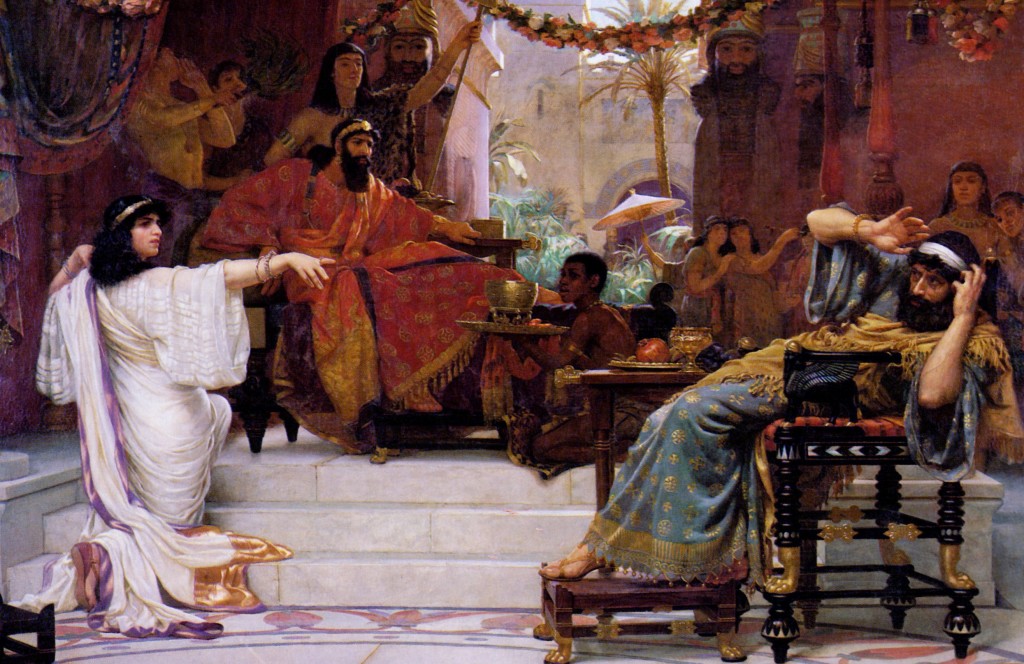By Larry Short
“The Lord gave and the Lord has taken away; may the name of the Lord be praised.” (Job 1:21)
I don’t know whether women struggle with this as much as we men do, but, as Americans, I think we are all way too performance oriented. Whenever something good happens to us, we have a tendency to feel a bit buoyed up. We may think, “Yes, I deserved this.”
Conversely, whenever something bad happens, we are deflated and frustrated. We also may think, “Yes, I surely deserved THIS.”
Scripture provides great anecdotal perspective on these, our very American tendencies. In the fourth chapter of the book of Jonah, we find our reluctant prophet—who so far in the story has struggled with massive disobedience issues, prejudice, and lack of compassion—acting like a spoiled child, disappointed because God has given grace to his enemies, and sitting alone on a hillside overlooking Nineveh, hoping for fire and brimstone while a spiritual revival of historic proportions is going on in the city below him.
“But to Jonah this seemed very wrong, and he became angry. He prayed to the Lord, ‘Isn’t this what I said, Lord, when I was still at home? That is what I tried to forestall by fleeing to Tarshish. I knew that you are a gracious and compassionate God, slow to anger and abounding in love, a God who relents from sending calamity. Now, Lord, take away my life, for it is better for me to die than to live.’
“But the Lord replied, ‘Is it right for you to be angry?’ Jonah had gone out and sat down at a place east of the city. There he made himself a shelter, sat in its shade and waited to see what would happen to the city.”’
As Jonah sat and sulked, two very interesting things happened:
“Then the Lord God provided a leafy plant and made it grow up over Jonah to give shade for his head to ease his discomfort, and Jonah was very happy about the plant.”
“But at dawn the next day God provided a worm, which chewed the plant so that it withered. When the sun rose, God provided a scorching east wind, and the sun blazed on Jonah’s head so that he grew faint. He wanted to die, and said, ‘It would be better for me to die than to live.’ But God said to Jonah, ‘Is it right for you to be angry about the plant?’ ‘It is,’ he said. ‘And I’m so angry I wish I were dead.’
“But the Lord said, ‘You have been concerned about this plant, though you did not tend it or make it grow. It sprang up overnight and died overnight. And should I not have concern for the great city of Nineveh, in which there are more than a hundred and twenty thousand people who cannot tell their right hand from their left—and also many animals?’”
Jonah 4:1-11 NIV
As Elim’s young adults group, Pulse, was studying this chapter, God sent a worm to take away a shade tree I had enjoyed for 22 years: my job at World Vision. I’ve had the privilege there of doing enjoyable, meaningful, and rewarding work for more than two decades. I can’t remember when I last felt bored at work. I started an Internet program that is now the third-largest online nonprofit fundraising platform in the world, pioneered online products that now raise hundreds of millions of dollars and save or change countless thousands of lives, and enjoy a huge amount of respect and a significant sense of accomplishment.
Then along came a worm. I was informed that I was being laid off on August 3.
World Vision is a wonderful organization, despite being staffed by fallen human beings like me, and I’ve learned not to take such things personally. I’ve gone through a lot of challenging transitions in my four decades of adult work life, and each and every one has ultimately proved the truth of Paul’s words in his letter to the church at Rome:
“And we know that in all things God works for the good of those who love him, who have been called according to his purpose.” Romans 8:28 NIV
It’s awesome news … we, too, can claim this promise if we love God, knowing that we have been called “according to His purpose!”
I know many of you reading this are going through far tougher things than I am right now: cancer, heart disease, family or marital struggles, addictions, or financial challenges. But God’s promises are true. The same gracious and loving God sends both shade trees and worms. He cares more about building Christ-like character in us than He does about making us comfortable.
I am praying for you as you face whatever “worms” God sends your way. Thank you for praying for me as well!
P.S.—One quick insight about the worm God sent Jonah. The Hebrew word for that worm is a very specific one: Tolah, the crimson worm who, throughout Scripture (as in the messianic Psalm 22), represents Christ Himself! Our suffering Saviour is present in a very real way in the midst of whatever sufferings God brings our way to build our character. So chew in that one for awhile!
Views – 179

 Follow
Follow
